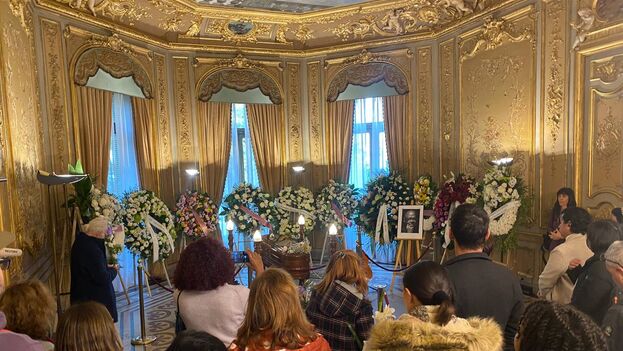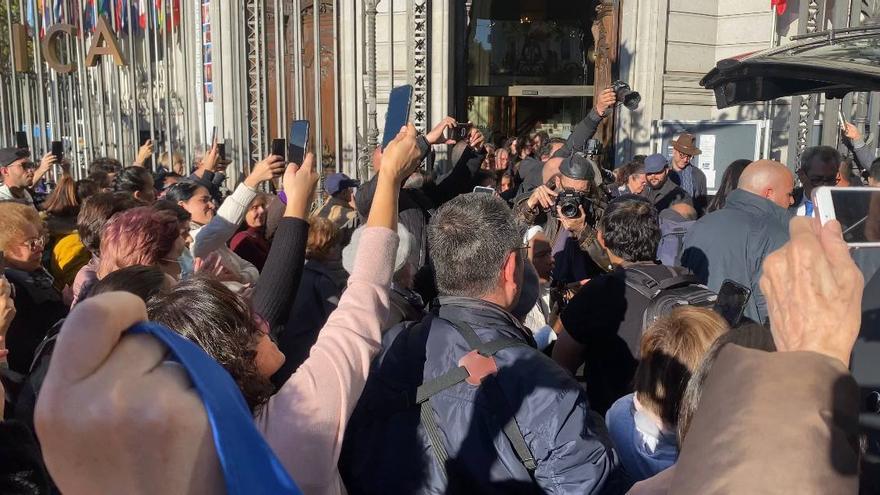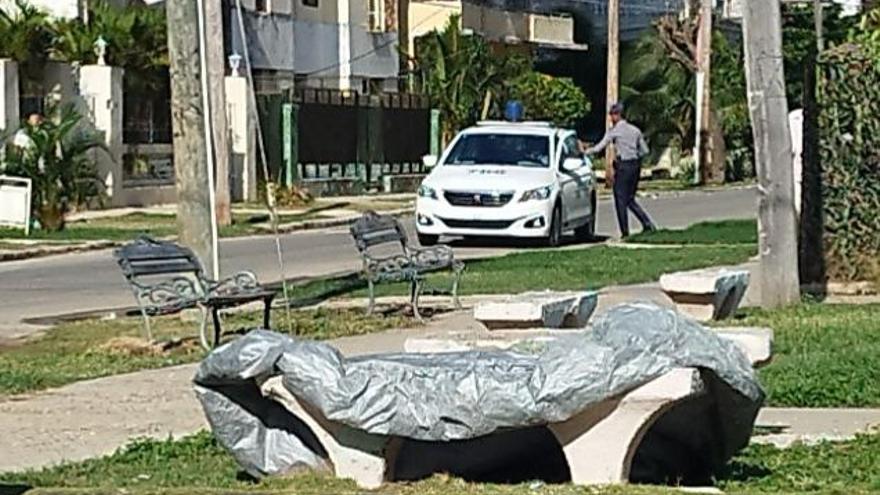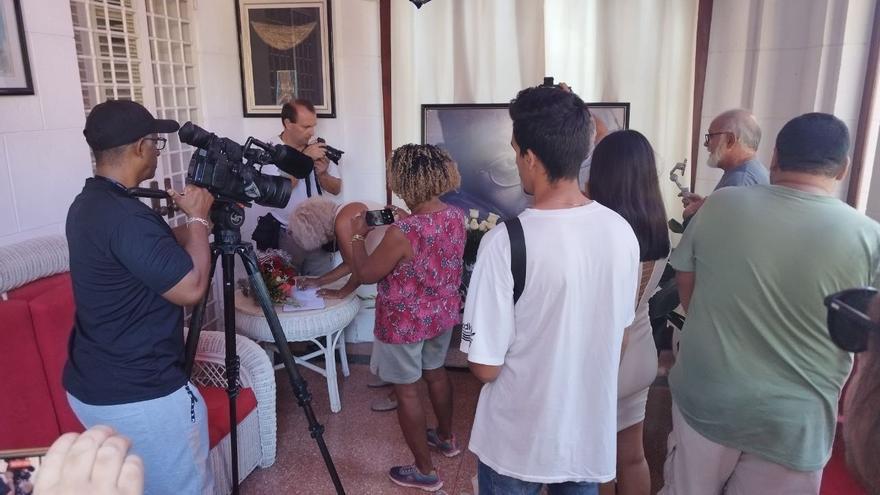
![]() 14ymedio, Madrid, 23 November 2022 — Hundreds of people approached the Casa de América in Madrid on Wednesday, where the funeral chapel of Pablo Milanés, who died early Tuesday, was installed. The musician, as confirmed to 14ymedio by family sources, will be buried near the Spanish capital, in the cemetery of Las Rozas.
14ymedio, Madrid, 23 November 2022 — Hundreds of people approached the Casa de América in Madrid on Wednesday, where the funeral chapel of Pablo Milanés, who died early Tuesday, was installed. The musician, as confirmed to 14ymedio by family sources, will be buried near the Spanish capital, in the cemetery of Las Rozas.
At the foot of the coffin, in place from 10:30 to 15:30, people had deposited numerous bouquets of flowers, mostly white. The Cervantes room of the Casa de América was also framed by a dozen wreaths of flowers, some sent by colleagues, such as Joaquín Sabina and the Universal Music label, and others by politicians, like Podemos supporters. Workers of the institution pointed out to this newspaper that this is the first time that Casa de América prepared one of its rooms as a funeral chapel to honor a particular person.
People lined up at the main entrance when the building opened, in the central Plaza de Cibeles, despite a cold and cloudy morning. Numerous Cuban artists and journalists exiled in Madrid, such as Yunior García Aguilera, Dayana Prieto, Luz Escobar, Julio Llopiz-Casal, Yanelis Núñez and Michel Hernández, made an appearance.
Cuba’s ambassador to Spain, Marcelino Medina, also approached the Casa de América, where he spoke to the press. Milanés “was one of the founders of the Nueva Trova, that movement of young composers who with the Revolution burst onto a stage with songs that are today a symbol of an entire generation, but who was also welcomed with great respect, with great admiration by the younger generations of today,” said the diplomat.
To the question of whether there would be any official tribute in Cuba, Medina replied: “I have no information in that respect.” Similarly, about the possibility of the musician being buried in Spain, he said: “it’s a personal wish that must be respected.”

The Cuban singer-songwriter, a universal figure, died at the age of 79 after several weeks of hospitalization for several infections as a result of his illness. Milanés suffered from a type of cancer — myelodysplastic syndrome — that decreased his immune response. He moved to Spain five years ago for medical treatment.
This Tuesday, on the Island, the Government wanted to monopolize any kind of tribute to the artist, who in recent years had openly broken with the regime.
At the same time that all the front pages of the Cuban official press were filled with unusual praise for Pablo Milanés, the various events organised in his memory in Havana were strongly monitored by State Security.
The surroundings of the park at H and 21st, in El Vedado, where a group of fans had spread the word that they would meet to honour the memory of the artist, singing his songs from three in the afternoon, were guarded by a police operation.

State Security agents dressed as civilians were seated and scattered on the benches. Motorcycles circled around and even a bus that the Police use to load people or fill with shock troops implied that, if any action took place, they would not let it happen with full freedom. Finally, a little more than 30 people dared to make an appearance and hung a Cuban flag on the kiosk located in the centre of the park.
Meanwhile, the troubadour’s family summoned friends and admirers to sign a book of condolences at Milanés’ recording studio, on 11th street, between J and I, also in El Vedado.
In the tribute, not many spontaneous people were observed, but there were officials and media related to the regime, such as Telesur. An unknown woman did not stop taking photos of everyone present.

Like the park at H and 21st, the area was under close surveillance. “You can’t even quietly pay tribute to a great artist who has died,” protested a young woman who approached to offer condolences to the musician’s relatives.
The operation, where even René González, one of the “five spies,” according to 14ymedio, appeared, was also extended to the Cuba Pavilion, headquarters of the Hermanos Saíz Association, on La Rampa, where the Ministry of Culture organized a tribute to Pablo Milanés.
No family member was at the official “cantata” disseminated on social networks by people associated with the regime.
Translated by Regina Anavy
____________
COLLABORATE WITH OUR WORK: The 14ymedio team is committed to practicing serious journalism that reflects Cuba’s reality in all its depth. Thank you for joining us on this long journey. We invite you to continue supporting us by becoming a member of 14ymedio now. Together we can continue transforming journalism in Cuba.
